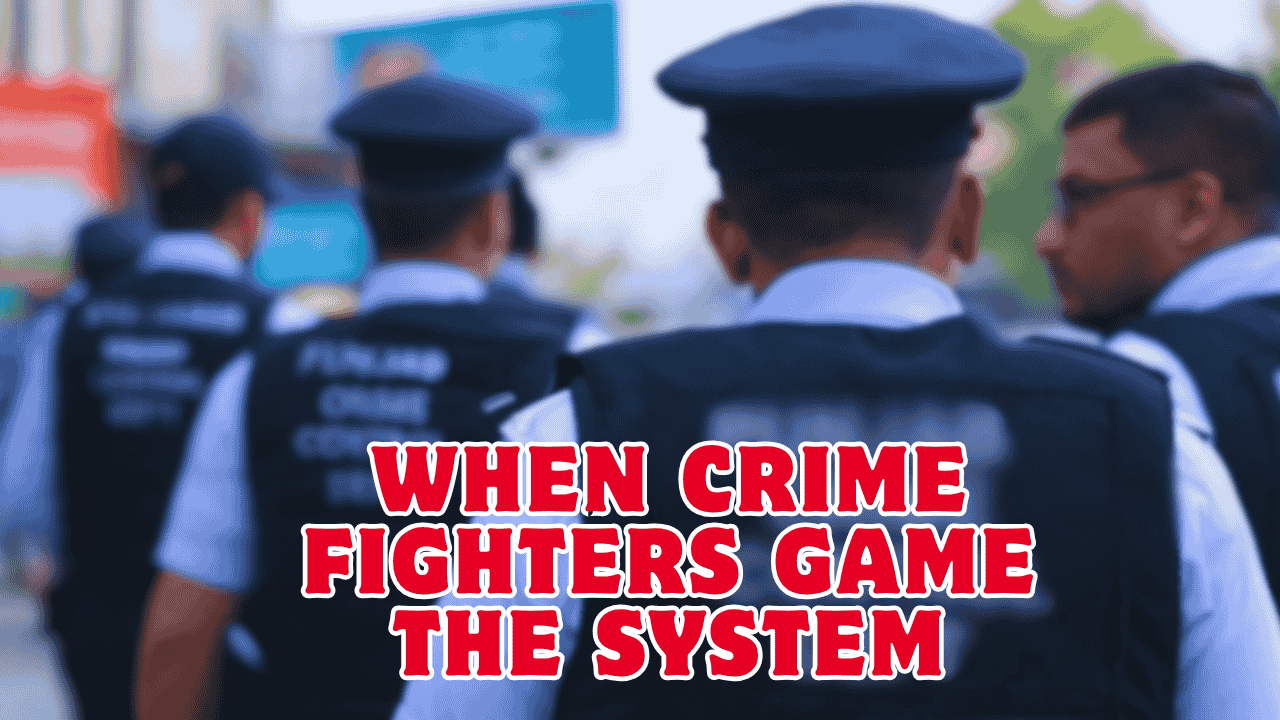By Saleem Mubarak
LAHORE –The recent crackdown by the Punjab Crime Control Department (CCD), which resulted in the killing of several suspects —including the notorious Shah Gang — in alleged police encounters, is being touted as a feather in the department’s cap.
Supporters have jumped on the bandwagon, hailing these actions as the “restoration of public safety.”
But here’s the million-dollar question: If we fight fire with fire by using the same brutal tactics as criminals, where do we draw the line between law enforcers and lawbreakers?
The bureaucracy knows which side its bread is buttered on and is quick to tap into the priorities of rulers eager to maintain peace and order in the society.
Punjab Chief Minister Maryam Nawaz, to her credit, has been making great efforts to ensure peace in the province, curb street crime, and rein in the growing Dalla Culture.
Meanwhile, CCD officials seem to be playing fast and loose with the law, all under the banner of purging the province of criminal elements.
Official Narrative vs. Human Rights Concerns
The media reported that several people in police custody were killed while CCD officials were allegedly escorting them for case-related recoveries like weapons and other evidence.
According to the official account, the accomplices of the detainees somehow learned of the movement of the police, arrived at the spot, and sprayed bullets left and right, causing the death of their own friends.
In each case, the same old song and dance was repeated: “The accused opened fire first, the police retaliated, and detainees were killed by bullets fired by their own accomplices.”
These quick and one-sided narratives are now under the microscope as human rights activists and legal experts question their credibility. Many fear that the CCD has taken the law into its own hands, creating what looks like a parallel “justice system” within the province.
Extrajudicial Killings: Crossing the Line of Justice
In a democracy, the goal is not just to eliminate crime, the method is equally important. The power given to the state to enforce the law is no guarantee that this power will be used without legal, constitutional and moral principles.
When the police start making “decisions” with guns without a trial, without witnesses and without a court decision, these are extrajudicial killings, not justice.
This approach is dangerous. Not only is there a loss of human lives, but it also shakes the public’s trust in state institutions.
People start asking what is the difference between the one who goes out with a gun to commit a crime and the one who kills with the same gun in uniform? If the guardian of the law himself starts trampling on the law, then fear settles in the hearts of the people, not protection.
Impact on Public Trust and Rule of Law
It is said that the courts are slow and not working well. Trials take too long. They also say witnesses are scared to speak. Using these reasons to take the law into their own hands is wrong. It is like cutting the roots of justice. If the system is slow or weak, it should be fixed. It should not be ignored or “solved” with bullets.
Remember, the CCD was also established through an ordinance — that is, without the approval of Parliament, in a hurry. This also raises concerns that there may not be a proper system of oversight and accountability for this institution. If there is no one to check power, then power becomes unbridled — and unbridled power often brings destruction.
The state has a responsibility to keep all its institutions within the ambit of the law, especially those that possess guns. If security is achieved at the expense of justice, then it is not a success but a defeat — a defeat that swallows up the moral legitimacy of governance.
The Need for Oversight, Accountability, and Legal Reform
It is essential that the Punjab government formulate clear legal regulations for the CCD, which include independent oversight, transparency and full accountability. Police encounters can never be a substitute for judicial action.
If the state really wants to eliminate crime, it will have to become bound by the law itself. The rule of law is not just a slogan, it is a practice — and therein lies true justice.


Beautiful Story 😍👏